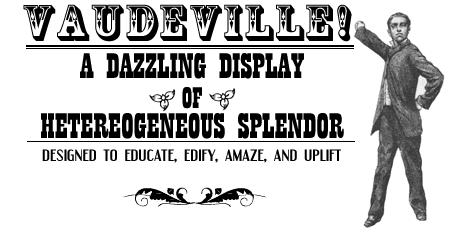1865 - 1898
The Gilded Age, full of political corruption and a laissez-faire government, led to the rise of Hollywood and the increase in Broadway theatre. During this time people's interest in theater started to grow, which led to an increase in the number of famous people. Theaters became centralized in the city because of the Great Migration and industrialization. African Americans started to showcase their films/shows in the city and across the country; however, they were usually separated from whites.
THE RISE OF HOLLYWOOD
THE RISE OF HOLLYWOOD

As a result of the growing interest of theater, many actors and actresses rose to fame and gained popularity across the nation
��Shakespearean actor born in Philadelphia
-
His feud with British actor William Macready caused the Astor Place Riot to occur
-
He made his debut in the Walnut Street Theater
"The actor's popularity is evanescent; applauded today, forgotten tomorrow." - Edwin Forest

Edwin Forrest

Edward Harrigan and Tony Hart
The Comedy team of Harrigan & Hart
-
Created one of the first Broadway hits, The Black Crook
-
The first to make musical comedies
-
They wrote, directed, acted, and managed their pieces
-
Social realists
"Beyond the importance of his themes, Harrigan also laid the groundwork for what would become American musical comedy, particularly in his use of songs to advance the stage action. Harrigan - and perhaps to a greater degree Hart - also represented one of the beginnings of an American popular theater based on an individual performer's comic brilliance." - The New York Times (1985)
A New Type of Theatre
VAUDEVILLE
The "African American" theater during the Gilded Age.

Following the Civil War, there was an era called The Gilded Age in which there was an explosion of urbanization, especially in New York City. The war had ended in 1865 and the number of people living in urban communities increased by around 40 million. With increased wages and more leisure time, people could and wanted to spend money on entertainment. There was also a cultural shift at this time in which the entertainment sector became exposed to corporate and big business funding. Businessmen saw the entertainment industry as a target for their greed because these capitalists recognized the fact that people would need transportation and more to attend shows. Therefore, these "robber barons" started to standardize and institutionalize American popular entertainment, just like movie executives would do in the future.
Vaudeville typically consisted of a series of unrelated mini acts/scene. These shows were made for an audience of mostly European immigrants that came to America during the Gilded Age.
THE WALNUT STREET THEATER
A theater in Philidelphia which Edwin Booth, brother of John Wilkes Booth, bought in 1863. This theater hosted famous actors and created numerous stars.


Theatre life was a popular activity of the social elite and New York City was the center of this activity during this era.
Trip to coontown (1898)
-
The first musical comedy entirely produced and performed by African Americans in a Broadway theatre
-
Robert Cole was a black composer and lyricist who found it impossible to work with white managers, so he created his own all-black production company that performed this show
-
The show addressed interracial marriage in a period of time where African American men were lynched for even looking at white women
-
The song “The Wedding of the Chinee and the Coon” is a political statement that honors a future where interracial marriage is common and smiled upon
-
The show is full of other racial impersonations that were viewed as an attempt to move anti-black stereotypes and blackfacing out of the spotlight in theaters and the US



Paint Your Wagon
Show about homesteading in the West
“Mariah makes the mountains sound like folks was up there dying’.”
From the song "They Call the Wind Mariah” which helped to highlight the issues and troubles of frontier life and the fact that homesteading wasn’t very easy. Furthermore, it showcases the fact that men weren’t immune to the issues of homesteading in the West.
“Pardner : Ben, how's married life?
Ben Rumson : Pardner, it was so good that I forgot that I was married.”
This explains the fact that husbands often exploited their wives and cheated on them. This was because women were objects at this time and men thought that they could mistreat and go past their wives proudly.
“I've salted claims, yeah. And I've sold whiskey to Injuns. And once a man in Walla Walla come at me with a gun and I killed him. I can't think of one commandment I ain't shattered regular. I never did fancy my mother and father, let alone respect 'em or honor 'em. And I have coveted my neighbor's wife - whenever I had a neighbor and he had a wife, mm, mmm! And I gamble and I cheat at cards, but there's one thing I do not do. I ain't never gulled a pardner. The one sacred thing, even to low scuff like me, is a man's pardner.”
Rumson, the main protagonist in the story, insults a man for stealing another man’s horse and claims that this was the worst thing he could’ve done. In this monologue he explains how he has broken many laws and commandments given in the bible; however, he would never steal a man’s horse.
